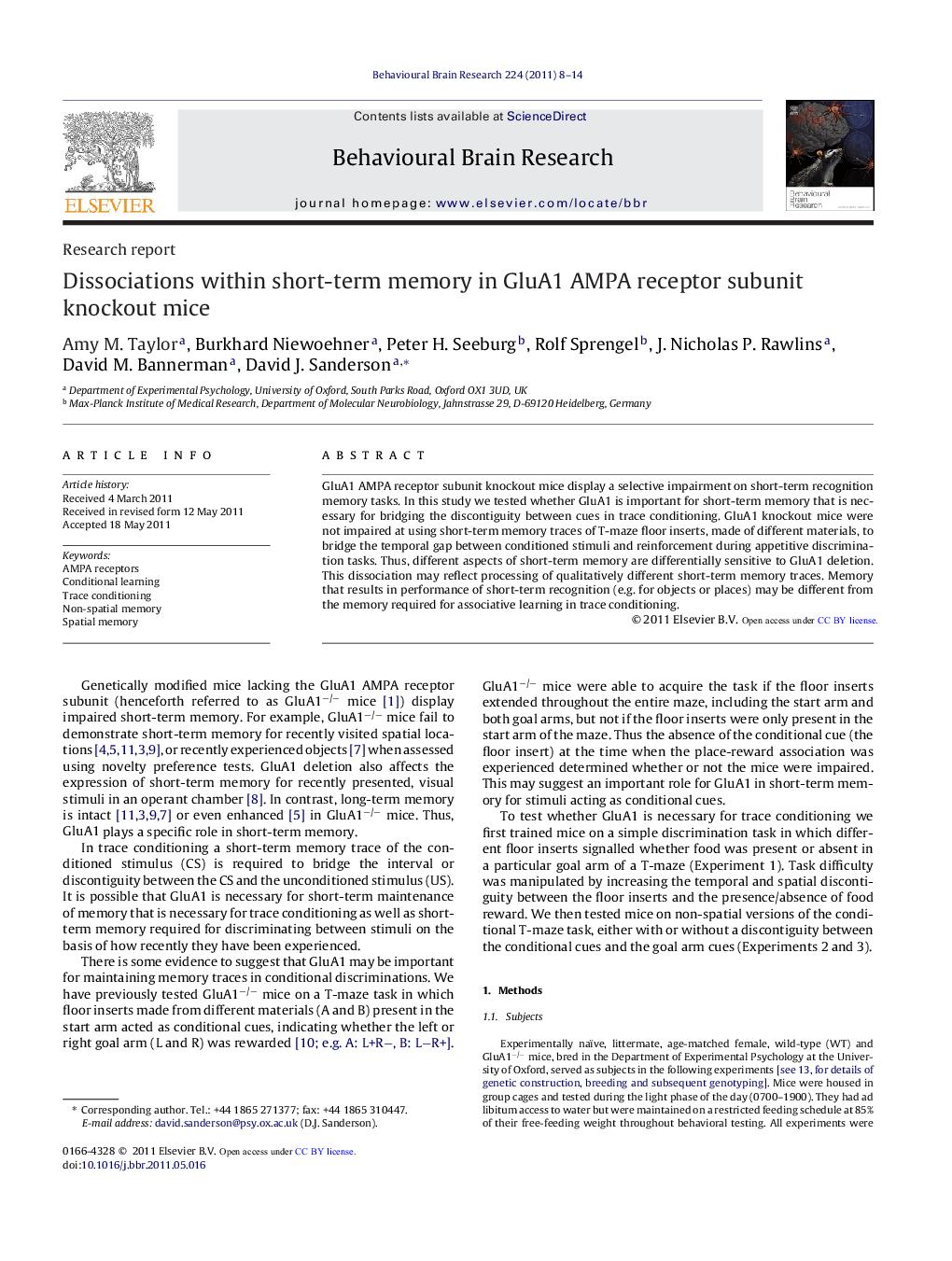| Article ID | Journal | Published Year | Pages | File Type |
|---|---|---|---|---|
| 6259754 | Behavioural Brain Research | 2011 | 7 Pages |
GluA1 AMPA receptor subunit knockout mice display a selective impairment on short-term recognition memory tasks. In this study we tested whether GluA1 is important for short-term memory that is necessary for bridging the discontiguity between cues in trace conditioning. GluA1 knockout mice were not impaired at using short-term memory traces of T-maze floor inserts, made of different materials, to bridge the temporal gap between conditioned stimuli and reinforcement during appetitive discrimination tasks. Thus, different aspects of short-term memory are differentially sensitive to GluA1 deletion. This dissociation may reflect processing of qualitatively different short-term memory traces. Memory that results in performance of short-term recognition (e.g. for objects or places) may be different from the memory required for associative learning in trace conditioning.
► GluA1 AMPAR subunit is important for short-term recognition memory. ► We tested whether GluA1 is necessary for short-term memory in trace conditioning. ► GluA1 deletion impaired rewarded alternation, but not trace conditioning. ► The dissociation may reflect processing of different short-term memory traces.
